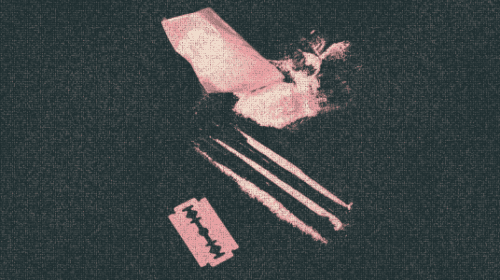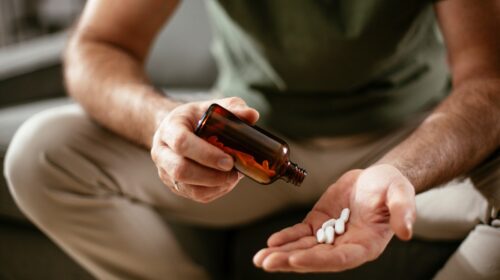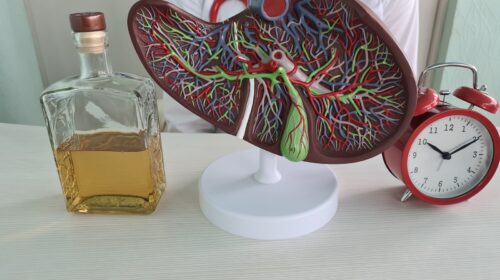“The doctors thought I was strung out and didn’t want to deal with me, so they just let me leave. I had a seizure and wrecked my car on the way home.”
A few years ago, I found myself in crisis. I had just left an abusive relationship for the sixth—and final—time. This was no small feat, as the familiar cycle of manipulation was already underway: incessant calls, hundreds of texts, and an ominous figure following me where I went. I knew the pattern well. If I didn’t return out of love, I’d be coerced back through threats of self-harm or violence against me and my family. After years of escalating abuse, I knew I had to stay gone before someone was seriously hurt—or worse.
It was April 2020, just a month after the COVID-19 lockdowns began. With the isolation and stress of the pandemic compounding my situation, I went to a crisis center seeking help. My ask was simple: I needed something for my crippling anxiety, something to help me sleep, and a referral to a therapist. Instead, in a rushed five-minute Zoom session, I was diagnosed with ADHD, PTSD, depression, and bipolar disorder. The psychiatrist prescribed me sertraline (Zoloft) as an antidepressant and oxcarbazepine (Trileptal) as a mood stabilizer.
I didn’t have bipolar disorder or any other mood disorder. I was a terrified, sleep-deprived person navigating the aftermath of trauma. But I’m not a doctor, and “stabilizing my mood” sounded pretty good at that moment. Trusting their authority, I filled the prescriptions and began taking them as directed.
The Highs Before the Crash
At first, the medications seemed to work. I felt energized, happy, and more productive than I’d been in years. I moved into a new apartment and poured myself into creating a vibrant, colorful space: rainbow rugs, brightly painted furniture, neon signs, in hindsight this should’ve been a clue that things were getting a little too happy, but I just thought, “This must be how healthy people feel all the time!” I was sleeping well for the first time in months, and my anxiety seemed to melt away.
But then came the crash.
One afternoon, I was at work when an intense headache overtook me. It felt like my skull was being crushed from one side. Within minutes, dizziness set in, followed by nausea, a racing heart, and uncontrollable sweating. My vision blurred, and I struggled to stand. I thought it might be a migraine and called my mom, a nurse, for advice. Her first question wasn’t about my symptoms—it was about my medications. When I listed them, she immediately told me to call poison control, suspecting Serotonin Syndrome.
I thought she was overreacting and almost went to bed instead, but since I was terrified of my mother finding out I ignored her advice, I listened to her. Poison control confirmed her suspicion, saying the interaction between the two drugs I was taking was know to cause SS, and told me to go to the nearest ER immediately.
What Is Serotonin Syndrome?
Serotonin Syndrome is a potentially life-threatening condition caused by an excess of serotonin in the brain, often triggered by the misuse or overprescription of serotonergic medications like SSRIs, MAOIs, or certain supplements. Symptoms range from mild (tremors, sweating, confusion) to severe (high fever, seizures, muscle rigidity, organ failure). Severe cases, if untreated, can lead to death.
In my case, the combination of Zoloft and Trileptal—at dosages far exceeding safe levels for a new patient—had pushed my serotonin levels into overdrive.
The Dangers of Misdiagnosis
At the ER, my experience only worsened. Drenched in sweat and shaking uncontrollably, I was immediately screened for COVID. My heart rate was 140 bpm, my temperature was 104°F, and my muscles were twitching involuntarily. I was agitated and getting confused on what I needed to say and do. Desperate for relief from the symptoms, I asked for an Ativan and the darkest room they had so that I could sleep. Was this the right move? Probably not, but I wasn’t in my right mind at that point. I just wanted relief. The doctor’s tone turned skeptical, and I could feel their judgment as they implied I was seeking drugs.
My face ran hot with humiliation (or maybe it was the severe fever). I pulled out my pill bottles, hoping to prove my case, but it didn’t seem to sway them. The doctor gave me a single Ativan—emphasizing before he did so that this wouldn’t fix “the real problem”—and told me to stop taking my medications. There was no aftercare plan, no offer to monitor my symptoms, no recognition of the gravity of what had just happened.
I left the hospital barely able to stand, hugging the walls to keep from collapsing. On my drive home, I had a focal seizure, lost control of my car, and crashed. Only when I was brought back to the same hospital by ambulance did they begin to take my condition seriously.
How Misdiagnosis Happens—and Why Judgment Must Be Absent
Misdiagnosis is far too common, especially in high-pressure environments like crisis centers. Mental health practitioners have limited time to assess patients, and many rely on surface-level observations rather than deeper inquiries into a patient’s history or current state. Unfortunately, this can lead to harmful assumptions.
In my case, the doctor saw a distressed, flighty person on their worst day and took that as my baseline. They prescribed powerful medications based on a rushed evaluation without fully understanding my needs. This kind of knee-jerk treatment is dangerous. The wrong medications, especially in high doses, can do far more harm than good.
Compounding the issue is the stigma patients face when they’re seen as “drug-seeking.” The moment I asked for an Ativan, the ER staff seemed to write me off. But as a medical provider, it is imperative to remain free of judgment, especially when dealing with patients in crisis. Jumping to conclusions about a patient’s intentions or character can result in life-threatening oversights, as it nearly did in my case.
A Preventable Crisis
It wasn’t until my prescriptions were reviewed that the hospital confirmed I’d been given four times the recommended starting dose of Zoloft and a medication (oxcarbazepine) that should never have been prescribed for my situation. Had the psychiatrist at the crisis center spent just a few extra minutes with me—or if the ER staff had taken my symptoms seriously—I could have avoided a near-fatal experience.
The aftermath of Serotonin Syndrome left lasting scars, physically and emotionally. I was concussed during the wreck, and for six months I wasn’t allowed to drive until I was cleared of further seizure activity. I experienced debilitating withdrawal from the medications, vomiting multiple times a day for weeks. Migraines became a frequent occurrence, triggered by even minor stress, and persisted frequently for nearly two years. Even today, 5 years on, I still get migraines once a month, but have learned a lot about how to handle them.
Lessons Learned
This experience taught me several important lessons:
- Advocate for Yourself: Patients should feel empowered to question their doctors, especially if something feels off. If a medication or diagnosis doesn’t sit right with you, seek a second opinion.
- Take Time to Listen: For medical professionals, it’s vital to listen without judgment. Rushed or biased evaluations can have catastrophic consequences.
- Prescribe with Care: Medications like SSRIs and mood stabilizers can be life-saving when used correctly, but their misuse can be deadly. Providers must consider the individual needs of each patient, not rely on one-size-fits-all solutions.
I went to the crisis center seeking help, not a handful of diagnoses or a cocktail of pills. What I received was dangerous, dismissive treatment that nearly cost me my life. This isn’t just my story—it’s a cautionary tale about the importance of careful, compassionate, and informed medical care.
In the end, what I needed wasn’t a label or a quick fix. I needed someone to listen, to offer genuine support, and to treat me as a person—not a problem to be solved in five minutes. Let this be a reminder to medical providers everywhere: your patients are trusting you with their lives. Don’t rush them.

























